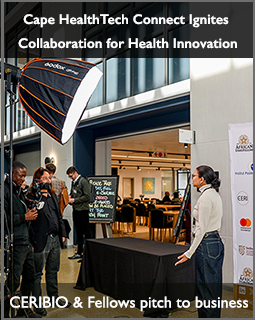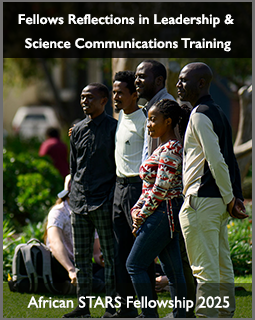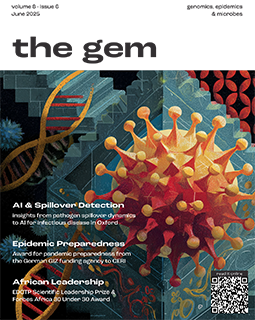Public Engagement: Climate Change and Microbes
This event, held at Kirstenbosch National Botanical Garden on 21 August, was organized by the International Society for Microbial Ecology (ISME) in collaboration with the Centre for Epidemic Response and Innovation (CERI) at Stellenbosch University. It drew an audience of over 150 high school learners, teachers, community leaders, and members of the public, offering an opportunity to explore the vital role of microbes—including bacteria, fungi, protists, and viruses—in relation to climate change.

The event began with an opening address by Thulani Makhalanyane and Phi Hugenholts, ISME presidentl,
They each set the stage by emphasizing the importance of bridging the gap between science and society in addressing global challenges. This was followed by welcoming remarks from Prof. Wim de Villiers, Vice-Chancellor and Rector of Stellenbosch University, who highlighted the university’s commitment to promoting scientific literacy and environmental stewardship.
Attendees were then treated to presentations from a distinguished lineup of speakers. Dr. Raquel S. Peixoto from King Abdullah University of Science and Technology (KAUST), and the newly appointed president of ISME, shared her groundbreaking work on marine microbiomes. 'After assiduously searching underwater for three months, we discovered the perfect place to build the first probiotic coral ‘village,’' she explained. 'We now have a permanent underwater laboratory where experts and principal investigators can develop and carry out their research. It’s a magical place, isolated, protected'
Next, Dr. Joana Falcao Salles from the University of Groningen provided insights into terrestrial and soil microbiomes. She highlighted that soils are the foundation of life on Earth, with soil microorganisms playing a crucial role in sustaining ecosystems and keeping our planet healthy. 'Conventional agricultural practices may aim for higher yields, but they often come at a cost to both the environment and farmers, due to the heavy reliance on external inputs such as fertilizers and pesticides,' she noted.
Dr. Luis Pedro Coelho from Queensland University of Technology then discussed the human microbiome and its connection to climate change. He emphasized the unique yet interconnected nature of microbial communities, stating, 'Microbes are different, but they are connected—they respect temperatures but not borders. However, there is hope in microbiome research, which can lead to innovative solutions.'
The event also featured a mediated panel discussion, led by Alwin Mabuza, Individual and Regular Giving Fundraiser at Stellenbosch University’s Development and Alumni Relations division. This session provided a platform for rich engagement between the speakers and the audience, culminating in a lively Q&A that fostered environmental stewardship and further discussion on actionable strategies for climate change mitigation.
Through this event, ISME19 highlighted the significant interactions between microbial ecosystems and climate change, aiming to foster greater public understanding and inspire actionable strategies for environmental conservation.
This news piece was published in the gem, Aug/Sep 2024

Click on the image above to read the gem, genomics, epidemics & microbes or scan the qrcode.
News date: 2024-09-01
Links:
https://issuu.com/the.gem/docs/2ndedition_the_gem_newsletter










